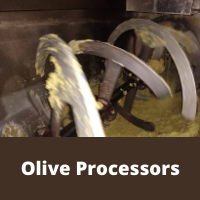As most people know, the olive tree’s history has biblical significance. It has been, therefore, a reassuring and tranquil presence in the Mediterranean region for thousands of years. A walk in any grove can still evoke those sentiments and give sense to the olive tree’s unique status as a symbol of peace. People who grow olives, to eat or to make oil, understand that it is a labour of love and appreciate the time and care needed to make the fruit palatable or to squeeze it for its natural juices and extract the oil.
It did not take long for the people of the Mediterranean to place the products from this gift of nature at the centre of their diet.
Although progressive scientific research has confirmed the healthy attributes of the olive and its oil, thousands of years of consumption more than equal modern testimony to its benefits.
Its success as a food and food enhancer has seen it become a common commodity in the Mediterranean area. The olive tree suited the region’s climate and soils and its fruit and oil suited the health needs of the people, which is why it became, and still is, a major industry of the area.
The olive tree’s product was not ‘posh’, and growing and processing table olives and oil was common knowledge. Even though the basics remain the same, the major difference today is that there are more advanced and efficient means of growing olives, processing the fruit and extracting the oil.
One of the downsides is that the size of the industry in Europe has increased incentives for adulterated and inferior grades of olive oil.
However, Australian-produced olive oil is relatively free of adulterated forms and a lot of effort is invested in pursuing the reputation for premium quality.
Production of premium, extra virgin olive oil is often presented as the way to profitability but this market can only absorb a certain amount. As Australia’s production levels increase this market may not be large enough to accommodate all the oil produced or all the growers.
A more robust local market must be developed, which in turn will help overall viability and make it more competitive, at least against imported, unadulterated extra virgin olive oil.
This can only happen if more work is done to make olive oil the food and food enhancer of choice for more people. The health benefits are there for promotion and olive oil’s ease of use make it attractive to today’s busier lifestyle.
Growth in consumer acceptance of olives and olive oil will happen once the simplicity and benefits of the products become as common here as in Europe. This is more likely to be achieved by making olive oil the popular, and not just the posh choice.



